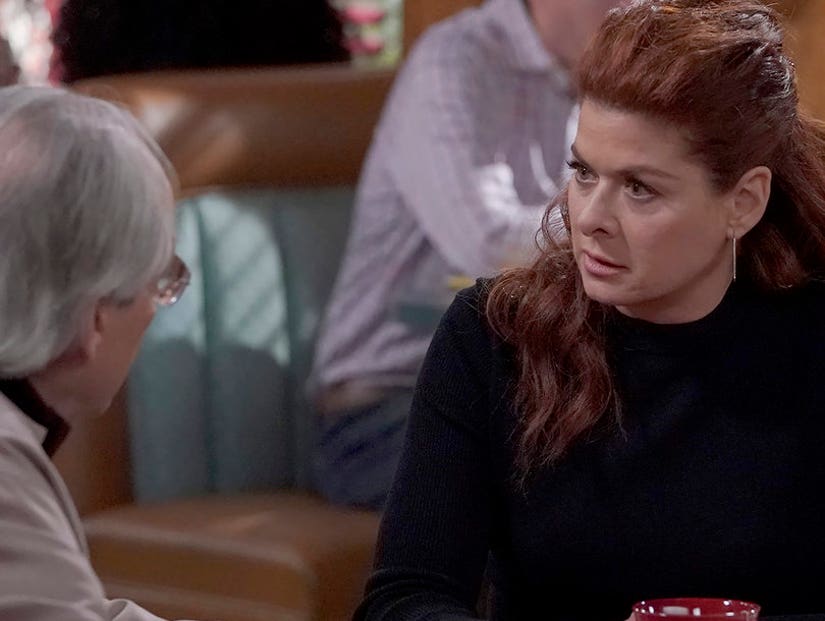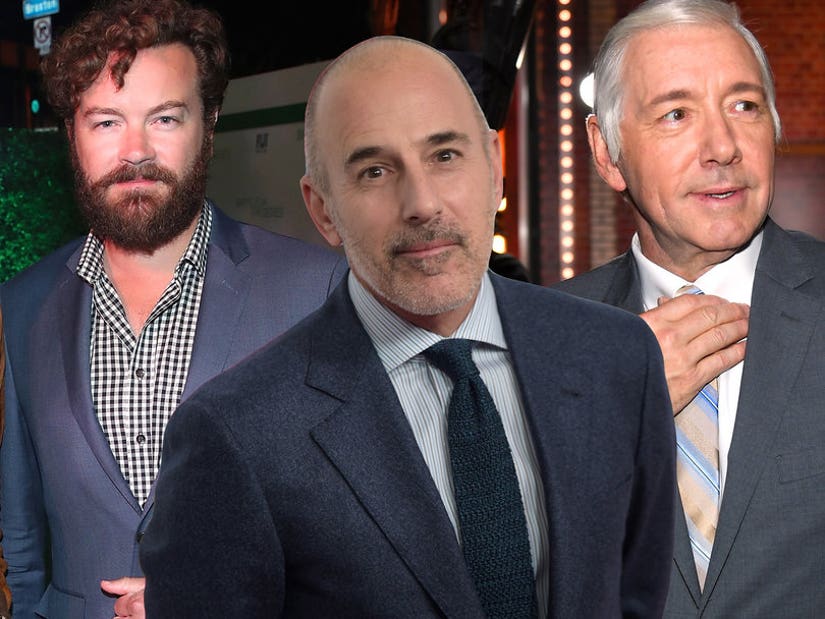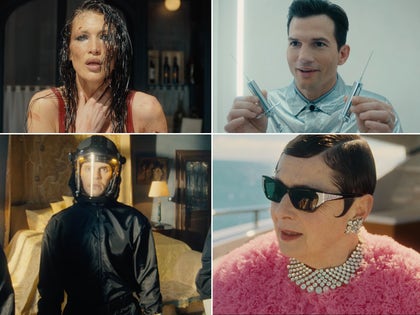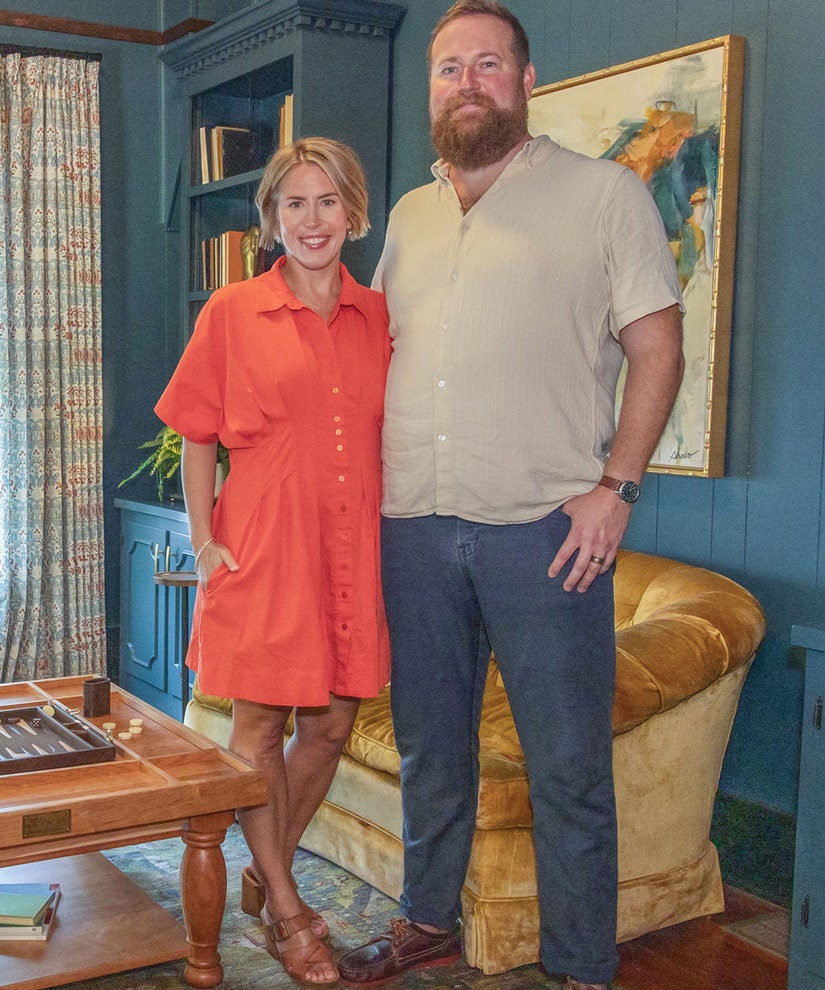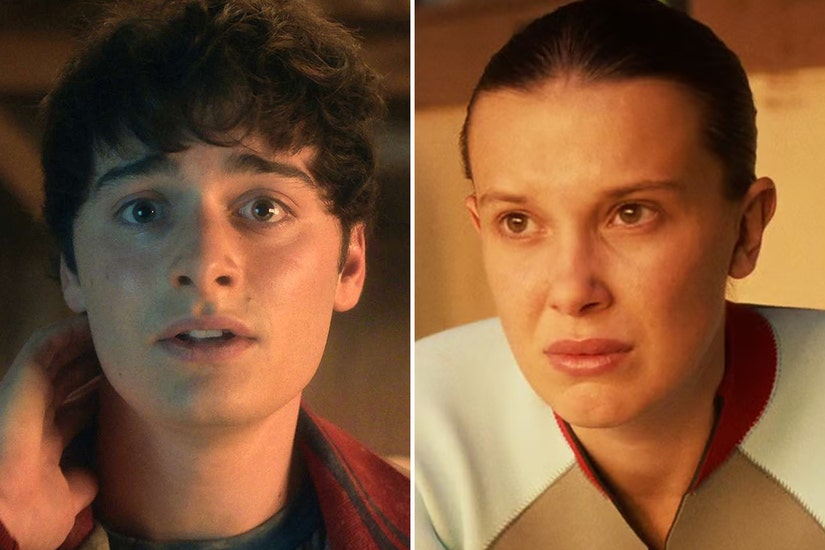While the show has shied away from politically-charged storylines this season, it hit this one with a sledgehammer!
After a very politically charged first season, "Will & Grace" has focused more on the silliness and camaraderie of its cast than serious issues, but they offered a bombshell addition to the ongoing #MeToo discussion Thursday night.
The powerful and poignant moment came amidst cut-scenes to a totally ridiculous segment where Karen (Megan Mullally) and Will (Eric McCormack) were competing in a gay bar over who would get to be Jack's (Sean Hayes) best man. And that's actually totally appropriate, because #MeToo and its aftermath does happen in the middle of life. That's what makes it so devastating.
 CBS
CBS
'Murphy Brown' Confronts Her #MeToo Moment and Learns Closure Isn't as Easy to Find
View StoryWhat made the scene special was how truthfully Grace (Debra Messing) and her father Martin (Robert Klein) got there. Martin was getting flirty with a waitress on a road trip with Grace, and she called him out on it. That brought up the hashtag, so there was no doubt this was the show stepping into this discussion
And Martin was perfect in representing the partiarchy's stance on the whole movement. "Everybody's so sensitive nowadays," he said. "Sometimes I feel like men can't be men anymore."
The importance of these words is that they are coming from Grace's father, someone she loves and adores even for all of his flaws. And that's an important distinction, because thus far there have been predators and victims in this narrative, but it's just as important to recognize that there are people on the sidelines who maybe just don't get it.
And this doesn't mean Martin is a bad person. He's just a little closed off and not fully grasping the enormity of the movement, which is why Grace decided it was time to clue him in on why #MeToo matters and just how prevalent its survivors are.
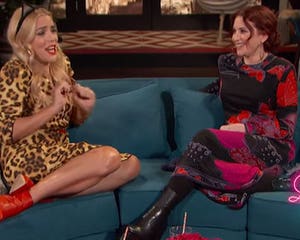 E!
E!
Megan Mullally Tells Busy Philipps Her House Was Haunted by the Ghost of Nicole Brown Simpson
View StoryIt was one of the most powerful performances Messing has given in the role, as she took her father's attitude to task and told him about the summer she worked for his best friend. What was beautiful about the way it was written was how many times Grace almost didn't go through with telling her story.
That's the reality for so many women, as they live with this thing festering inside of them. She told him she couldn't tell him back when it happened because, quite simply, what if he didn't believe me? What if nobody believed me? And as we've seen as recently as the Brett Kavanaugh hearings, not believing women is a tried and true solution to #MeToo stories.
Martin started off by dismissing her stories, saying that perhaps she misremembered them or pointing out that it was a different time.
"No, that's not an excuse," Grace shot back. "What, just because it was a different time, it wasn't bad? No, all that meant was that people got away with it."
Even still Martin was dismissive, asking if Harry had patted her on the bottom. Even in the face of his own daughter trying to talk to him about something traumatic that his best friend did to her, he rebuffed, rejected and redirected her. But Grace would not be stifled and finally she decided to tell him.
 NBC
NBC
7 'This Is Us' Tissue Moments Ranked: Struggling Beth Gets Amazing Advice from Unlikeliest Source
View StoryAnd it wasn't pretty. The details were graphic to the point she only stopped when she said, "He pulled down my pants and put his fingers up--" It seems pretty clear what she was getting at and it was pretty graphic and raw and real for network television, and we applaud NBC for airing that much, even if they had Martin shout "Stop!" over the word "up" to obscure it a little.
They then saved the gut punch for the end, as Grace reminded Martin, "I was 15."
Earlier, Martin was dismissing Harry possibly flirting with his daughter or even smacking her on the butt, but all that time he was talking about a 15-year-old girl. Those things might sound benign to him, but even if that's all it had been, it would be incredibly confusing and uncomfortable and inappropriate for a young girl to endure.
And finally, Martin broke down and saw the enormity of what he'd missed for so many years. Grace was able to forgive him and accepted his apology, but it was important that we see that someone could learn. The sad truth, though, was that if it wasn't his own daughter telling the story of her own #MeToo moment, he might not have learned anything.
Just like the politician who changes their stance on gay marriage only after their child comes out as gay, or changes their stance on pre-existing conditions only after their child develops one, we are creatures of judgment and disconnect. If it's not happening to us, we have a much easier time passing judgment against it, or dismissing it outright.
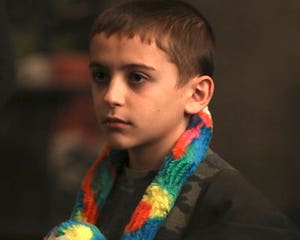 NBC
NBC
6 Freaky 'Manifest' Questions After Cal Finally Takes Center Stage and Knows Way Too Much
View StoryAnother beautiful detail was the revelation that this was a story Grace hasn't told Will, either. She shared it with her mother, and now her father. And after she returned to the apartment, she didn't offer it up then, either, instead letting the other three talk about their day.
And that's the truth of it. This may never come up again and she may never tell these people what happened. It is still something that lives inside of her and will always be there. But by sharing it with us in the way that she did, she helped normalize and destigmatize this reality for so many women, and hopefully opened the eyes to so many men that just because she's never told you doesn't mean it didn't happen.
Martin thought his flirting was harmless, but in a world where so many women are attacked and harssed by men on a far-too frequent basis, it's never just harmless. He's dehumanizing the waitress, for one, and he's dredging up these experiences in his daughter as she has to think of her father as someone who doesn't fully see her as a person.
"Will & Grace" airs Thursdays at 9 p.m. ET on NBC.
Got a story or a tip for us? Email TooFab editors at tips@toofab.com.

